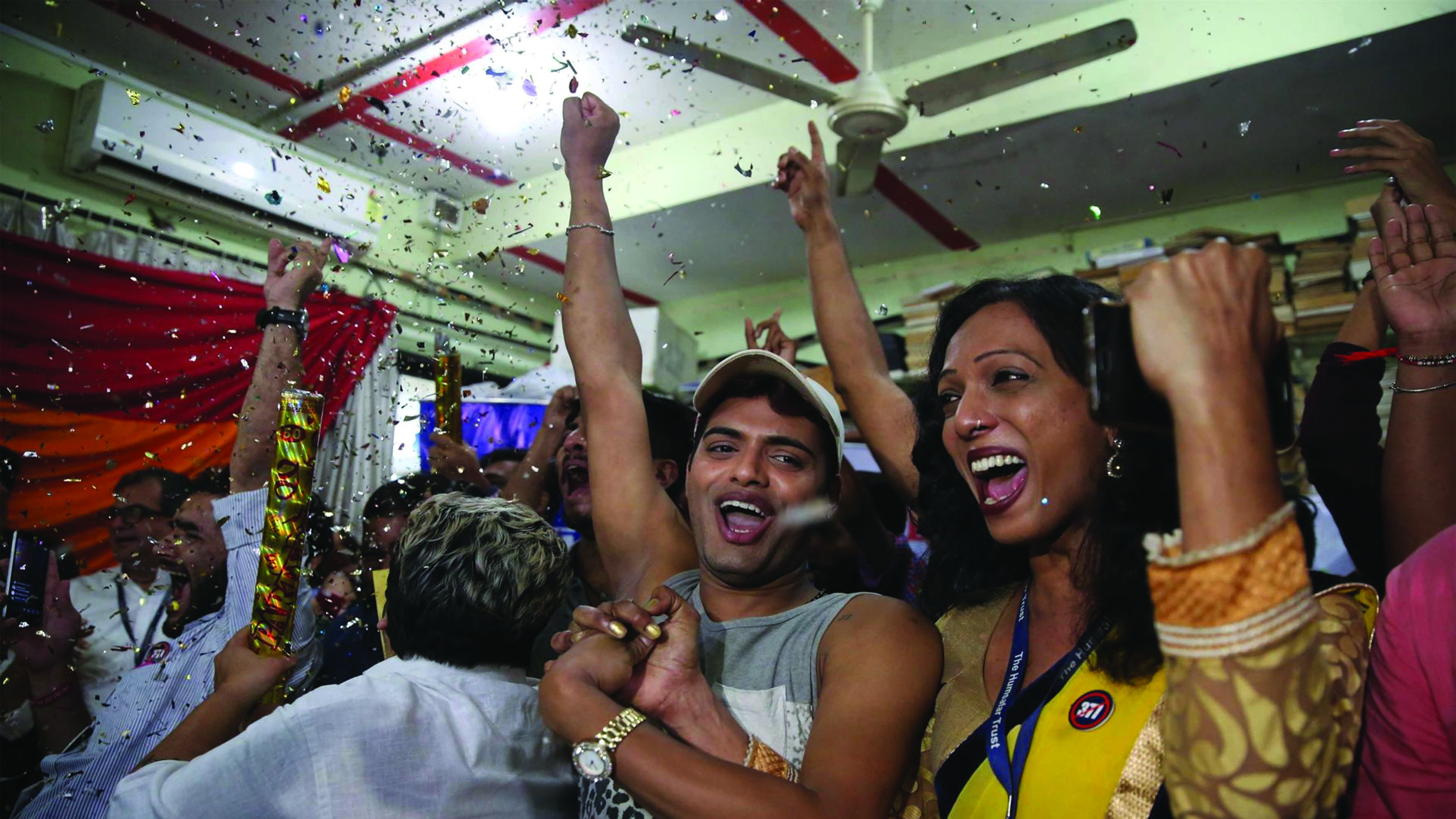The LGBT+ world and its allies celebrated yesterday with the momentous news that the Supreme Court of India had decriminalised homosexuality. The overturning of Section 377, a 158 year-old colonial-era law banning homosexual acts, led to widespread jubilation from the LGBT+ community of India. Yet for 71 other countries, the fight continues.
Powerful and emotional images from India as people celebrate the decriminalization of gay sex.
Activists have been working hard for a very long time to overturn Section 377, a colonial-era law. pic.twitter.com/agNlguGpwx
— Mashaal Mir (@MashaalMir) September 6, 2018
Seeing as how India’s population is over 1.3 billion people, the amount of LGBT+ people affected by the decision makes this one of the biggest legal decisions in queer history.
India's long-awaited decriminalization of homosexuality is a first step towards returning to its pre-colonial acceptance of variations in gender expression and sexual preferences. Hardline Hindu, Muslim and Christian opposers – buzz off. https://t.co/XGGntTrFW2 #IndiaForGayRights
— Shree Paradkar//श्री पराडकर ? (@ShreeParadkar) September 6, 2018
The landmark ruling has encouraged those abroad still facing discrimination to fight criminalisation in their own countries.
We are witnessing history being made. Hats off to all my #LGBT rights activist friends who have battled hard to get here. You have saved India from the shame of being one of the remaining countries in the world that criminalises #homosexuality – thank you for that. #Section377
— Anna MM Vetticad (@annavetticad) September 6, 2018
Tommy Koh, a veteran Singapore diplomat, has urged the local LGBT+ community there to challenge their own homophobic laws. Koh stated: “I would encourage our gay community to bring a class action to challenge the constitutionality of Section 377A”.
PinkDot, a Singapore gay rights group, stated: “We hope that parliament will consider the decriminalisation of S377A. We are ready to keep up with India.”
Of those 71 other countries where homosexuality is still illegal, nine; Afghanistan, Brunei, Mauritania, Yemen, Nigeria, Sudan, Somalia, Saudi Arabia and Iran, still issue the death penalty as punishment. 30 of those countries are former British colonies who still have laws based on original colonial anti-LGBT legislation.
While Africa, Asia and the Middle East have the highest prevalence of anti-LGBT+ laws, it should be noted that many other countries outside those 71 still have laws in place banning same-sex marriage. This does not even include countries where homosexuality may not be criminalised but is certainly frowned upon.
https://twitter.com/karanjohar/status/1037587979265564672
While there is still a long road ahead for worldwide LGBT+ equality, at the moment it is a time for celebration.
Bismaya Kumar Raula, a campaigner for LGBT+ rights in India, told reporters: “I can’t even explain how I am feeling right now. The long battle has been won. Finally we have been recognized by this country.”
© 2018 GCN (Gay Community News). All rights reserved.
Support GCN
GCN is a free, vital resource for Ireland’s LGBTQ+ community since 1988.
GCN is a trading name of National LGBT Federation CLG, a registered charity - Charity Number: 20034580.
GCN relies on the generous support of the community and allies to sustain the crucial work that we do. Producing GCN is costly, and, in an industry which has been hugely impacted by rising costs, we need your support to help sustain and grow this vital resource.
Supporting GCN for as little as €1.99 per month will help us continue our work as Ireland’s free, independent LGBTQ+ media.

